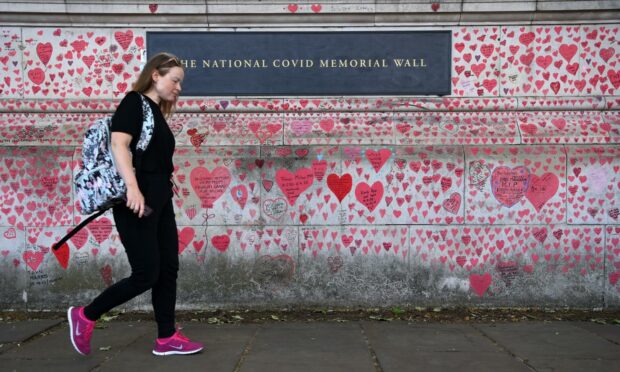We human beings are enormously resilient.
Through our lives each one of us at some time faces a significant challenge and, generally speaking, we survive.
The challenges that come to us can involve changes to the circumstances of our lives, such as the loss of a job or a home. They can involve our health, either after an accident or because of illness. They can involve significant changes in our relationships, separation or divorce from a partner, or loss of a loved one through bereavement.
It is a constant inspiration to me to hear stories where people endure difficult circumstances that in some cases lead to greater service of family or society in general.
On the other hand, human beings are also frail. Our minds and bodies can be easily damaged forever by an event in life. The social structures in which we live and thrive can be disrupted. Economic challenges can be so severe that they cannot be overcome.
People ‘get over’ trauma differently
Sometimes these events are obvious to others, sometimes they are not. We are learning, little by little, that the effect of repeated difficult events, or maybe one traumatic occurrence, can scar a person’s mental health well into the future, causing them to suffer from symptoms related to post-traumatic stress disorder or other psychiatric illnesses.
The outcome of this should be that we realise that we cannot judge what another person needs in order to “get over” something. Some people recover quickly, some never recover at all. Telling others to “move on”, or “look on the bright side”, or “forgive and forget” can be a significant and hurtful disservice to another person.
Rather than making things better, things are made considerably worse. The person is left dealing with the initial events and challenges, whatever these were, compounded by a sense that they have not been heard or understood.
Unfinished business must be addressed
All of this is made much worse if recovery, whatever that might mean, involves an injustice being acknowledged and addressed with an appropriate outcome. Stories of families, as it is usually families, looking for justice and redress are common. They follow unlawful killings and negligent accidents, for example. There can be no healing or recovery without justice.
There are three big stories in the news right now that relate to matters of justice and healing: the failed prosecutions related to deaths in the Troubles in Northern Ireland; the delayed investigation into the management of the pandemic, in the UK and in Scotland; and the withdrawal of troops from Afghanistan. Each of these big stories reveal unfinished business in different ways.
Governments might want to move on, or not to address the remaining issues right now, but some of those most affected, particularly through the loss of loved ones, cannot just get over what they have experienced.
Penitence is still relevant
As a bishop in the church I commonly meet the expectation that people should simply forgive and move on in life. Surely Jesus said we should forgive or turn the other cheek. This view is particularly difficult for Christian people who have endured something traumatic. It can be possible to forgive, but so much more is required to make something well again.
Forgiveness and reconciliation are slow activities, done with care. They are not just the responsibility of individuals, but of governments and institutions
These challenges have been present in the churches since the very earliest times. Sometimes Christians did things to other Christians that significantly damaged their lives. The question was asked back then: “Should people say sorry and everyone get over it and move on, or was something more required?”
The answer was something more. First of all, there needed to be a proper exploration of what had taken place, so that the consequences and hurts could be properly acknowledged. Then there followed a period where the person causing the upset showing penitence – real sorrow for what had taken place.
Society can’t move on without forgiveness
Penitence showed a desire to change and not repeat the mistake. Penitence often took an outer form, such as wearing particular clothes. Then, after a period of time, reconciliation was attempted. Usually this was accompanied with public rituals, so that everyone was witness to the change of heart and the restored relationships.
All of this was and is very important. Faith is about love, but it is also about justice. Both things are considered to be attributes of God. The aim in communities is reconciliation and wholeness, but this does not come quickly or cheaply.
Forgiveness and reconciliation are slow activities, done with care. They are not just the responsibility of individuals, but of governments and institutions. No society can move on unless proper attention is given to these things.
The Rt Rev Anne Dyer is Episcopalian Bishop of Aberdeen and Orkney and Scotland’s first female bishop


